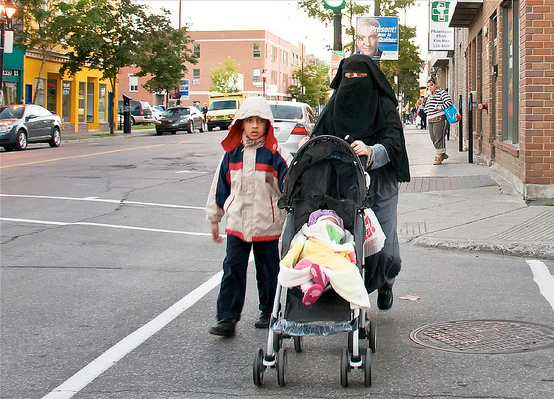

OTTAWA – Canada’s top court ruled Thursday that under certain circumstances a Muslim woman can wear a veil during court testimony.
In a 4-2-1 split decision, the Supreme Court built on an Ontario Court of Appeal ruling that offered a compromise and laid out a legal test that would help decide whether a veiled woman could testify.
The highest court said, among other factors, the strength of a person’s religious belief, the nature of the evidence, and the importance of the credibility of the witness all must be weighed.
But “if the liberty of the accused is at stake, the witness’s evidence is central to the case and her credibility vital, the possibility of a wrongful conviction must weigh heavily in the balance, favouring the removal of the niqab,” wrote Chief Justice Beverley McLachlin.
It had to look at two competing Charter rights – the witness’s freedom of religion and the accused’s fair trial rights.
“An extreme approach that would always require the witness to remove her veil while testifying, or one that would never do so, is untenable,” McLachlin wrote.
“The answer lies in a just and proportionate balance between freedom of religion and trial fairness.”
Trial judges and tribunals have to look at the sincerity of religious belief, the risk to trial fairness, whether both rights can be accommodated, the court ruled.
If not, they have to consider broader societal harms including whether it would discourage veiled women from reporting offences and the harm it may cause to the fairness of the accused’s trial.
The case before the higher court dates back to 2007, when N.S., whose name is protected by a publication ban, accused her uncle and cousin of sexually assaulting her as a child.
During the preliminary inquiry, she asked to testify with her face covered, based on her Muslim beliefs – a request denied by the judge.
The Ontario Superior Court overturned that ruling before the Ontario Court of Appeal offered a compromise with a legal test.
N.S. has yet to testify in the sexual abuse case. The case will now go back to the preliminary inquiry judge who will weigh all the factors laid out by the highest court and decide whether she can testify with a veil.
Nathalie Des Rosiers, with the Canadian Civil Liberties Association, said it’s a balanced attempt to reconcile the competing rights.
The Supreme Court heard the case in December 2011.



